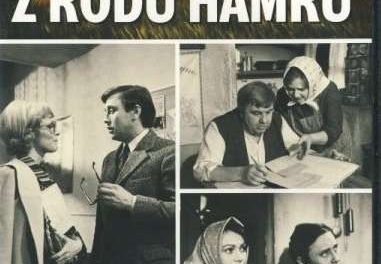It turns out that Washington isn’t the only place where ideas go to die . . . Watching the derivative and uninspiring fare served up last week by the networks to woo advertisers, I was flummoxed at the lack of creativity and modernity . . . I asked one media big shot what he watches. He replied Homeland, Breaking Bad, and Mad Men—all cable hits—failing to mention any of his own network shows.
— Maureen Dowd, 21 May 2013 (A27)
It’s a sign of the times when Pulitzer Prize-winning op-ed political columnist Maureen Dowd of the New York Times attends the annual network upfronts and comments on the state of American television programming. Her blanket indictment of scripted fare on broadcast TV is old news, but her fixed attention on high-end television dramas is one more indication of how many of these series are now part of the mainstream cultural conversation.
In a related vein, veteran New Yorker film critic David Denby goes so far as to claim that TV has replaced ‘movies as our national theater’ in his recent book-length lament, Do the Movies Have a Future?(1). Longtime fellow film critic and historian, David Thomson, suggests a similar fate in his just published The Big Screen. Concurrently, Denby and Thomson have written swan songs to the silver screen, while TV counterparts, such as Brett Martin with Difficult Men and Alan Sepinwall with The Revolution Was Television, have released books that trumpet the latest golden age of TV.




Is such hyperbole warranted? Is there any value in resurrecting an imagined clash between movies and television in the age of convergence? Just like the battle royal between the two behemoths in King Kong vs. Godzilla (1962), the trumped up death match between film and TV is overstated and mainly smoke and mirrors as each entertainment sector is destined to emerge from the current muck and debris of an uncertain future to survive as continuing characters in the next phase of industrial development—albeit in an altered state.
From their inceptions, film and television have been evolving but the environment for each is particularly turbulent in 2013. Two of the more prominent and successful members of the Hollywood establishment, Steven Spielberg and George Lucas, appeared on a June 12 panel devoted to the future of entertainment at USC’s School of Cinematic Arts. They were joined by Microsoft Xbox executive, Don Mattrick, where everyone agreed on the aesthetic and immersive potential of gaming as a storytelling format.
From left to right, George Lucas, Don Mattrick,
USC School of Cinematic Arts Dean Elizabeth Daley, and Steven Spielberg

More unexpectedly, though, Spielberg and Lucas made news by predicting an inevitable ‘meltdown’ in the theatrical film sector as a result of the growing obsession with mega-budget ‘tentpole movies’ that cost up to $250 million or more to produce, market, and distribute where smaller pictures, such as Spielberg’s Lincoln (2012) and Lucasfilm’s Red Tails (2012) ‘barely got into theaters.’ Ironies abound with this forecast: Spielberg and Lucas are as responsible as any filmmakers for the blockbuster model that has grown ever more dominant for theatrical releases since the 1970s; still, they too can be passed over by the movie studios ‘getting narrower and narrower in their focus’ (Cohen).
Be that as it may, Denby, Thomson, Martin, Sepinwall, Spielberg, Lucas, along with numerous other commentators and creative talents are simply reacting in one way or another to the widespread migration of screen storytelling from theaters to TV to an array of digital devices and games to the Internet. As far as theatrical pictures, Lucas concluded the aforementioned panel by stating that in the not too distant future ‘going to the movies will cost 50 bucks or 100 or 150 bucks, like what Broadway costs today.’ Moreover, the economic, artistic, and cultural primacy of theatrical movies over television is no longer as taken for granted as it was a generation ago.
In point of fact, the move towards parity between TV and film started in the 1980s when the firewall between the two entertainment sectors grew outdated with the industrial changes brought on by convergence. By the 1990s, TV was rapidly improving as a storytelling medium, making up for the half-century head start enjoyed by motion pictures. Just consider that when the membership of the Writers Guild of America (WGA) voted in 2005 for the ‘101 Greatest Screenplays’ from their ranks the most recent entry in the top-10 was #6 Annie Hall (1977); and only three of the top-25—#16 Pulp Fiction (1994), #22 The Shawshank Redemption (1994), and #24 Eternal Sunshine of the Spotless Mind (2004)—were released after 1990.
By comparison, when the WGA members similarly selected the ‘101 Best Written TV Series’ in 2013, five of the top-10 shows debuted after 1990 with #7 Mad Men (2007-present) still on the air; as 14 of the top-25 shows made their first appearances within the last 20 years (Brownfield). This relatively high proportion of recently produced television programs continues throughout list. In contrast, the vast majority of the ‘101 Greatest Screenplays’ were written before 1990. Granted lots of caveats can be offered to explain this comparative difference. Still, it’s hard not to argue that the best series on television are currently more complex and challenging than their predecessors; and, in turn, TV now matches film in its potential as an innovative and artistically satisfying storytelling medium.
Some movie critics acknowledge a qualitative rise in television drama in particular with a few even going further in their assessments. In 2010, for example, A.O. Scott of the New York Times asked, ‘Over the past decade, how many films have approached the moral complexity and sociological density of The Sopranos?’ He further asserted that ‘the traditional relationship between film and television has reversed, as American movies have become conservative and cautious, while scripted series, on both broadcast networks and cable, are often more daring, topical and willing to risk giving offense’ (35). As the WGA 101 TV listing attests, many scripted series have contributed to the recent flowering of television storytelling in the 21st century. It is also no accident that Scott singled out The Sopranos (1999-2007) as well as The Wire (2002-2008), Mad Men, and Lost (2004-2010) for special consideration.
2007 Emmy for Outstanding Writing in a Drama Series: The Sopranos
The Sopranos ranks #1 as the WGA’s best written television series of all-time. More than a half-century after the first stirrings of prime-time drama, The Sopranos jump started the aesthetic, narrative, and generic potential of TV to new and ever-greater heights. The WGA’s top-5 dramatic entries also include #7 Mad Men, #9 The Wire, #10 The West Wing (1999-2006), and #13 Breaking Bad. All ‘best of’ lists and awards have their shortcomings, but they do provide a snapshot of the conventional wisdom at any given moment in time. To provide another instance, the editors of Entertainment Weekly announced their own list of the ‘100 Greatest TV Shows Ever’ this summer and their top-5 dramas ended up being #1 The Wire, #5 The Sopranos, #8 Buffy the Vampire Slayer (1997-2003), #9 Mad Men, and #18 Breaking Bad (‘TV: Greatest Shows Ever’).
Best Scenes from The Wire
So much about American television changed after the premiere of The Sopranos in 1999. This series too is perched on the shoulders of programs as diverse as Twin Peaks (1990-1991) and The Simpsons (1989-present), among many other movie and television antecedents. In that way, The Sopranos is not standing alone as the best show ever, but it was a tipping point. There is certainly a ‘before’ and ‘after’ to TV in the United States and internationally when considering this series. It was the last straw in toppling the traditional framework that always placed motion pictures above television in the entertainment hierarchy.
Bryan Cranston as Walter White in the Breaking Bad finale, ‘Felina’

As has happened with other zeitgeist shows, Breaking Bad (2008-2013) is today being touted by many journalists and critics as the best TV program ever in response to its final exquisitely crafted season. This series is certainly in the conversation but why do we have to choose just one out of an already sizeable list of possible shows that have all extended the aesthetic and cultural reach of the medium in their own unique and special ways? What is most striking about the aforementioned WGA listing is how many of these possible contenders premiered just prior to or right after the turn of the new century.
Breaking Bad is yet another example of the imaginative power and vitality of television in the new millennium. It ended its run on Sunday, September 29, just as Homeland (2011-present) returned for the start of its third season. Both programs have won Emmys for Outstanding Drama Series, although tellingly, Breaking Bad was recognized for the first part of its fifth and last season, while Homeland was honored for its auspicious debut year. These two shows represent the promise and challenges of this transitional period where the cable-and-satellite sector has gone well beyond the storytelling strategies and tactics followed by the broadcast networks in their initial 55 years of producing scripted programs.
The most remarkable accomplishment of Breaking Bad’s creative team is that they never lost sight of the internal dynamics of the series’ overall story arc and characters. The show gained momentum and improved every year over its five-plus seasons. On the other hand, Homeland’s writers got stuck in the weeds time and again in the program’s second season when they couldn’t decide whether or not they were creating a deftly plotted post-9/11 political thriller or a far more traditional love story that took advantage of the obvious onscreen chemistry between the program’s two leads, Claire Danes as Carrie Mathison and Damian Lewis as Nicholas Brody.
Suffice it to say, it is still rare when the potential of a scripted series is fully realized and remains at or near its creative apogee for years on end. The recently completed Dexter (2006-2013) is another far more common example of a show that stayed on the air one or two seasons too long. Dexternevertheless had its moments, especially during its second season. If the current state of scripted fare is not necessarily a golden age, the 2000s are at least another breakout time in television’s brief history. Taking the long view, it surely won’t be the last, but it may be the medium’s most innovative so far. Y2KTV is ascending.
Gary R. Edgerton is Professor and Dean of the College of Communication at Butler University. His latest books are The Sopranos (Wayne State University Press, 2013) and a reprint edition of American Film Exhibition (Routledge, 2013). He also coedits the Journal of Popular Film and Television.





